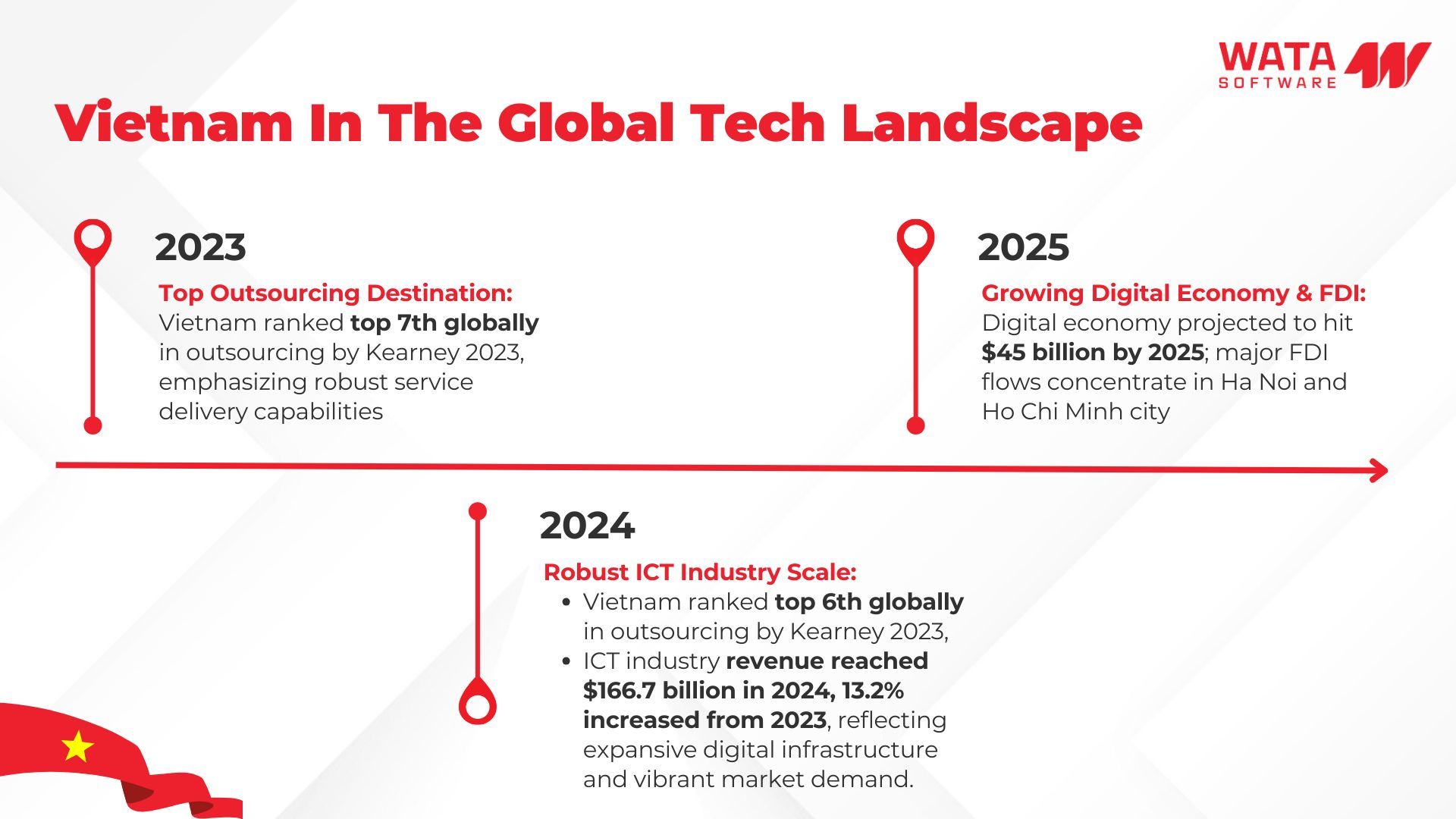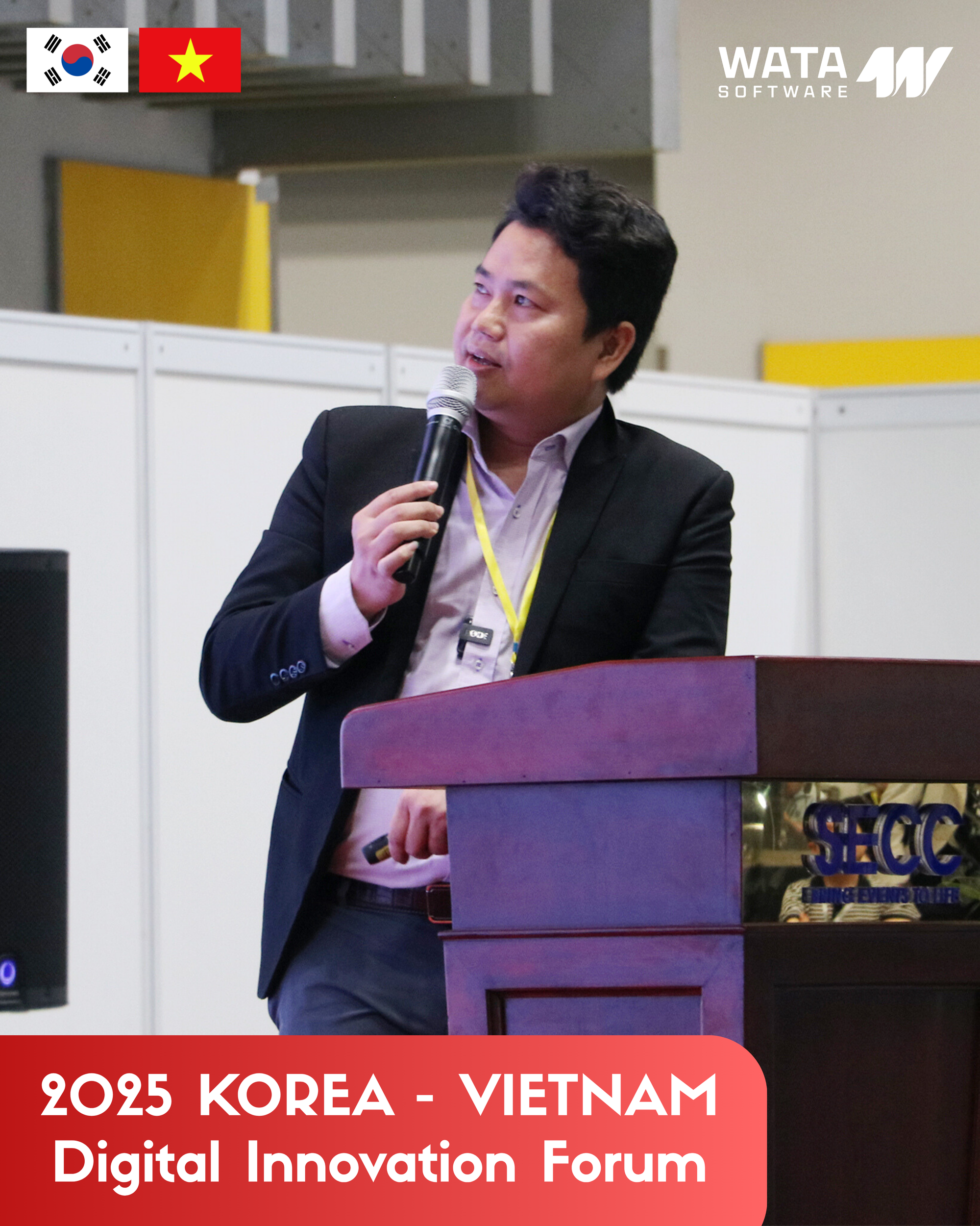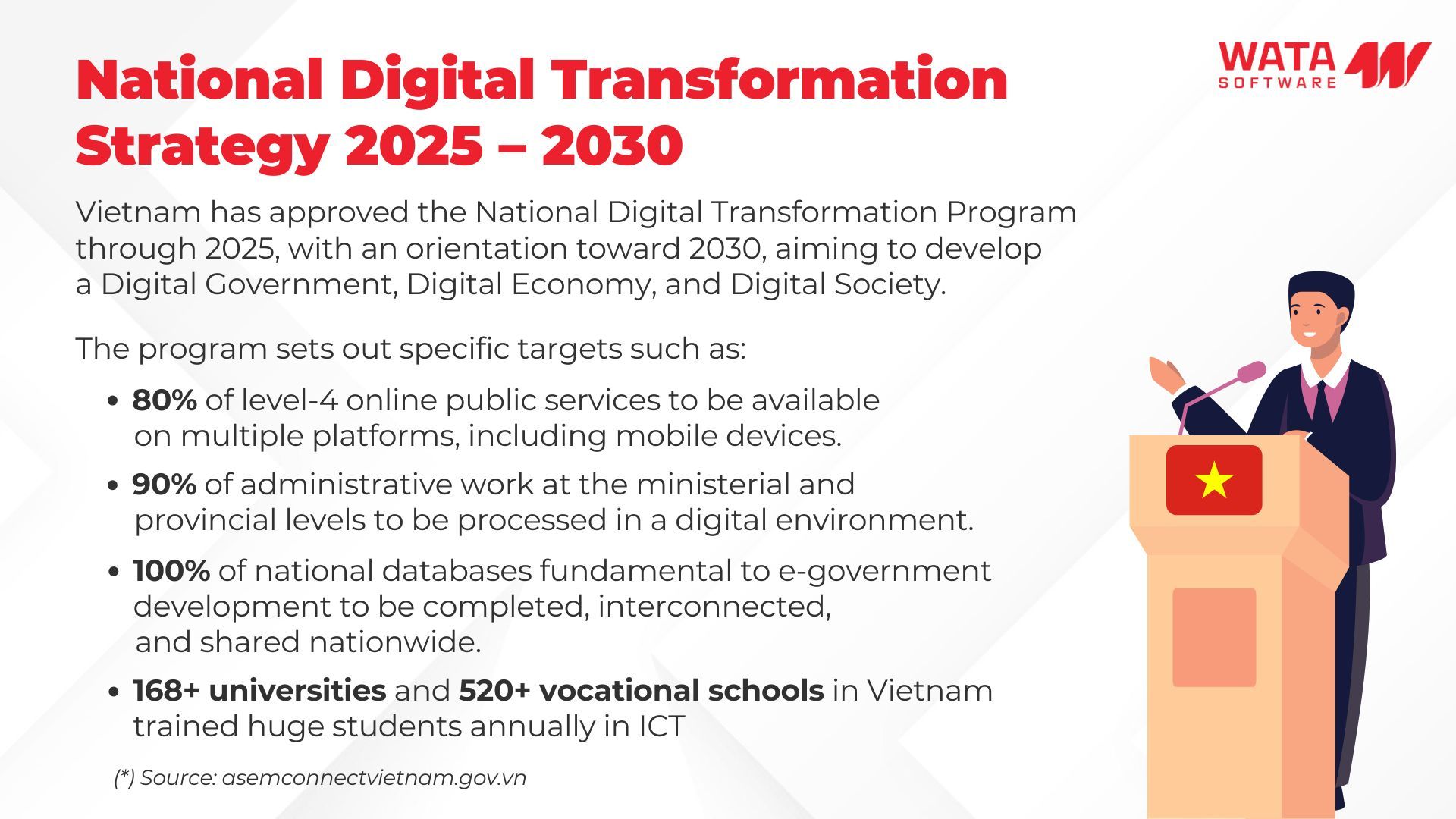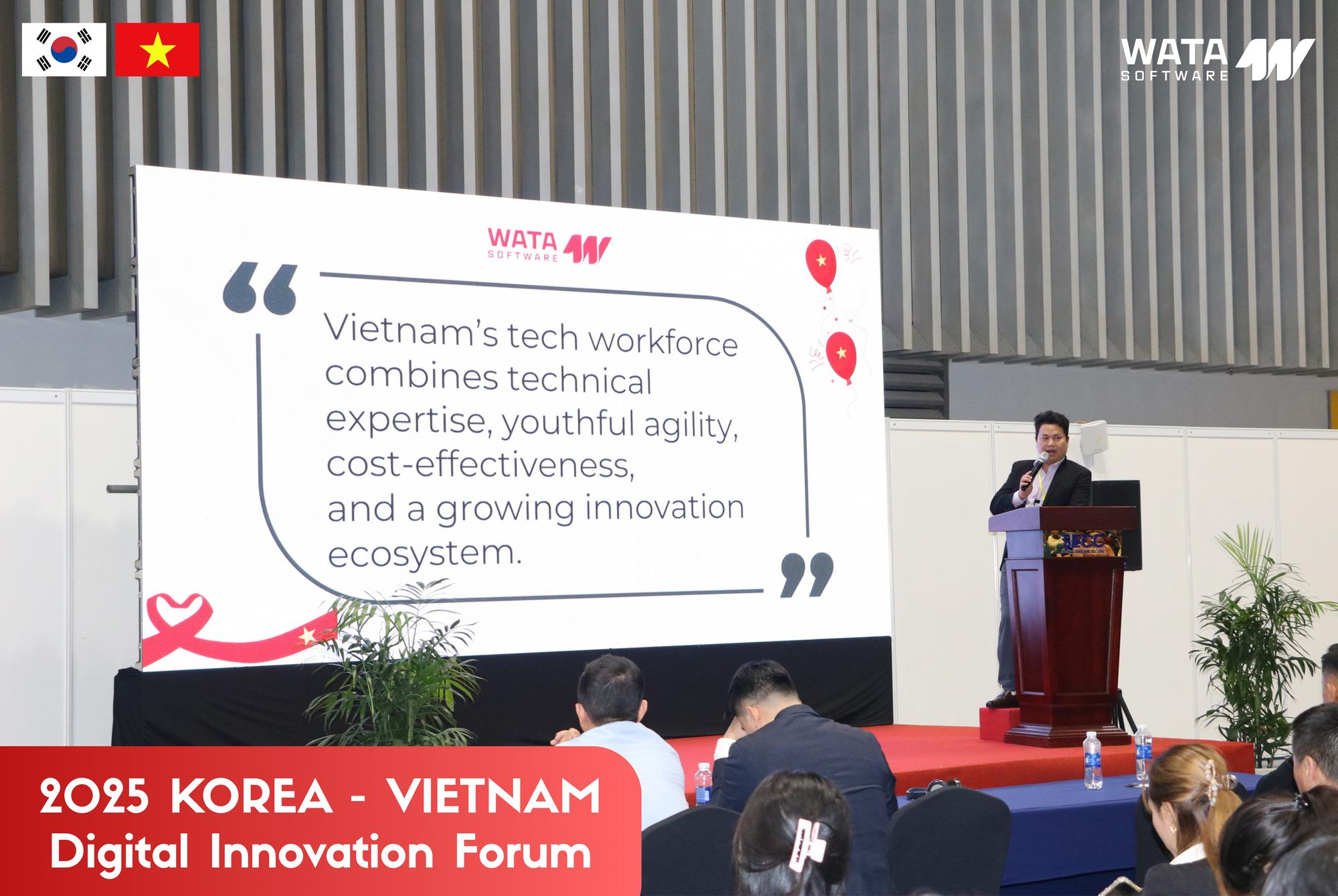Vietnam's Tech Workforce: The Driving Force Behind Global Digital Transformation

In recent years, Vietnam has rapidly emerged as one of Asia’s most promising technology hubs. Fueled by a vibrant, young, and highly skilled workforce, the country has become a go-to destination for global businesses looking to accelerate digital transformation. From software development to artificial intelligence and fintech, Vietnamese tech professionals are playing a central role in shaping the future of the digital world.

A Young and Dynamic Talent Pool
One of Vietnam’s key advantages lies in its youthful population. With a median age of around 32 and 530,000 skilled IT engineers, the country is teeming with tech-savvy professionals eager to learn, adapt, and innovate. Each year, more than 50,000 IT students graduate from universities and vocational institutions, ensuring a constant influx of new talent into the industry.
Vietnamese developers are known for their strong technical foundations, especially in programming languages such as Java, Python, .NET, and JavaScript. Many have also gained expertise in emerging technologies like blockchain, machine learning, and cloud computing. This technical proficiency, combined with a strong work ethic and problem-solving mindset, makes them valuable contributors to global technology teams.

Vietnam in the Spotlight: 2025 Korea - Vietnam Digital Innovation Forum
The global tech community has taken notice of Vietnam’s growing digital capacity. At the 2025 KOREA - VIETNAM: Digital Innovation Forum, Mr. Thien Dam, CEO of WATA Software, delivered a keynote address that highlighted the strength and global potential of Vietnam’s tech workforce.

In his presentation, Mr. Thien emphasized how Vietnamese developers are no longer just outsourcing support but are becoming strategic partners in innovation. He shared insights from WATA Software’s international projects and demonstrated how Vietnamese engineers have helped global clients achieve faster time-to-market and more agile digital transformations.
“Vietnam’s strength doesn’t lie solely in numbers. It’s about adaptability, a hunger to grow, and the ability to think beyond the code,” Mr. Thien noted during the forum. “Our people bring value not just as coders but as collaborators, innovators, and problem solvers.”
His words resonated strongly with international attendees and further solidified Vietnam’s image as a rising tech powerhouse in Asia.

Cost Efficiency Without Compromising Quality
Another key driver of Vietnam’s attractiveness as a tech destination is cost efficiency. Compared to developers in Western countries or other outsourcing hubs like India or Eastern Europe, Vietnamese developers offer competitive rates—often 30–50% lower—without compromising quality. This allows companies to significantly reduce development costs while maintaining high standards of delivery.
Moreover, many software firms in Vietnam, especially in major cities like Ho Chi Minh City and Hanoi, are ISO-certified and follow international standards such as Agile, Scrum, and CMMI in their project management. This ensures consistent, high-quality output that aligns with global expectations.

English Proficiency and Cultural Compatibility
While Vietnamese is the national language, English proficiency among tech professionals is steadily improving. Many young developers have studied English since childhood and are comfortable working in English-speaking environments. This has contributed to the smooth collaboration between Vietnamese teams and international clients.
Vietnamese professionals also tend to be highly adaptable and culturally sensitive. They are respectful of deadlines, open to feedback, and committed to building long-term client relationships. These soft skills, often overlooked, are crucial for seamless cross-border cooperation.
Government Support and Industry Growth
The Vietnamese government has shown strong commitment to the growth of the tech sector. Initiatives such as the “Make in Vietnam” strategy aim to encourage local innovation and reduce dependence on imported technologies. Meanwhile, favorable tax policies and investment in digital infrastructure have made it easier for tech firms to set up and expand their operations in the country.

As a result, Vietnam’s IT industry is growing at an impressive rate. According to the Vietnam Software and IT Services Association (VINASA), the software export revenue exceeded $12 billion in 2023. Major global players such as Intel, Samsung, IBM, and Microsoft have already established a strong presence in Vietnam, further validating the country’s position as a global tech hub.
WATA Software: Leading the Way
Vietnam’s ascent in the global tech scene is supported by leading software companies like WATA Software. With years of experience delivering innovative digital solutions for clients across the U.S., Europe, Korea, and Japan, WATA represents the best of Vietnam’s IT talent.
Offering a range of services including offshore development teams, custom software development, and end-to-end product delivery, WATA combines technical excellence with a deep understanding of client needs. The company’s success stories—many of which were referenced during Mr. Thien’s forum presentation—are a testament to the capabilities of the Vietnamese workforce.

Challenges and the Road Ahead
Despite its remarkable progress, Vietnam’s tech workforce still faces several challenges. The rapid pace of technological change requires continuous upskilling, especially in fields like cybersecurity, data science, and AI. While the government and private sector are investing in education and training, more collaborative efforts are needed to meet the growing demand for highly specialized tech roles.
Moreover, competition for talent is intensifying, as global companies increasingly look to tap into the Vietnamese market. To retain top talent, firms must offer attractive compensation packages, career growth opportunities, and a supportive working culture.

Conclusion
Vietnam’s tech workforce is one of the country’s greatest assets in the digital era. Agile, ambitious, and highly capable, Vietnamese developers are helping businesses around the world stay ahead of the curve. Whether it’s software development, IT outsourcing, or digital innovation, Vietnam offers a unique blend of talent, affordability, and reliability.
With leaders like Mr. Thien Dam and companies like WATA Software representing the country on global stages, Vietnam is no longer just an outsourcing destination—it’s a strategic innovation partner for the digital future.




